Exploring Art Deco in Miami’s South Beach
By Jen Karetnick
Listen to this article
Close your eyes and picture Miami’s South Beach. Pastel-hued buildings with porthole windows. Curved walls and roofs. Glass block features and futuristic neon signs. They quickly jump into your mind’s eye.
This is tropical deco, a regional version of art deco popularized in the 1930s and 1940s. You’ll recognize it by its palm tree–like flourishes and flamingos. It’s also the style of Marriott Vacation Club®, South Beach, in the heart of the nationally registered Miami Beach Architectural District, or simply known as the Art Deco Historic District.
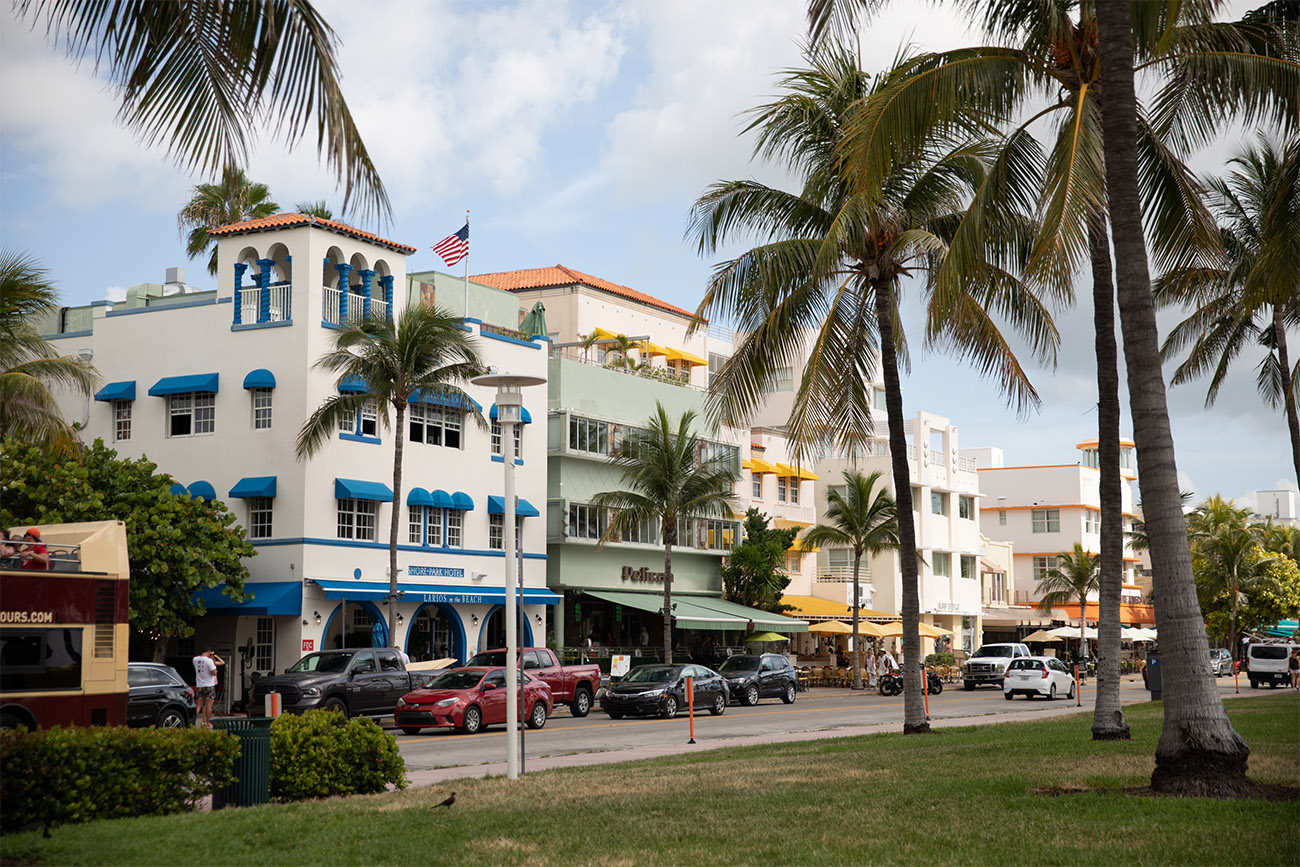
Greater Miami Convention & Visitors Bureau
Multiple other examples of tropical deco dot the city, Miami-Dade County, and beyond. In fact, most of the refurbished buildings in the Art Deco Historic District are now hotels, apartments, and mixed-use buildings with shops, restaurants, and bars.
One of the best ways to learn about these buildings is to stop at the Art Deco Welcome Center at 1001 Ocean Drive, run by the Miami Design Preservation League, which helped save many of these places from the wrecking ball of progress. It serves as a museum offering lectures and films, as well as an information point for guided and self-guided tours.*
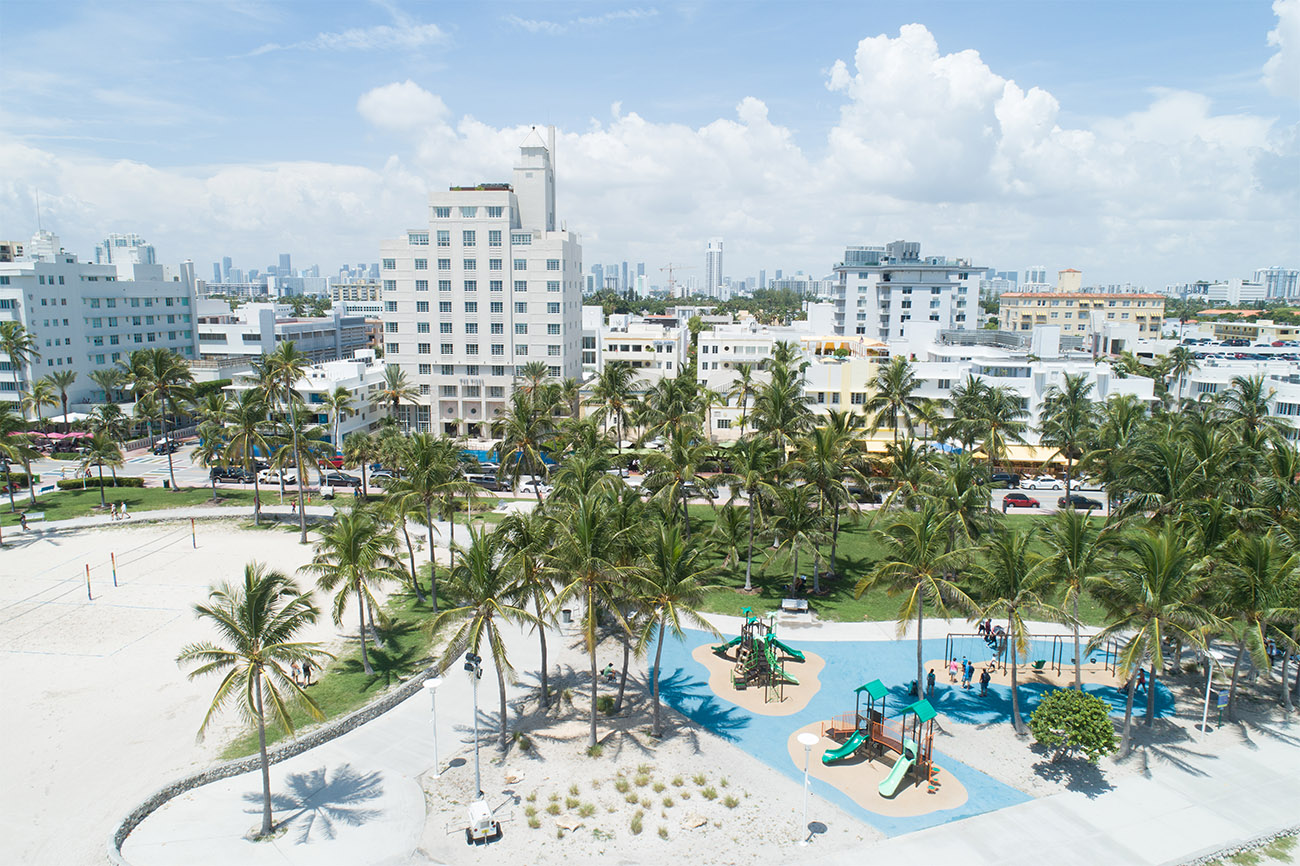
Greater Miami Convention & Visitors Bureau
Tropical Deco in Many Forms
If you’re looking to do your own tropical deco tour from the welcome center, simply walk across Ocean Drive to the beach and check it out 5th to 15th streets. You’ll start to see variations on tropical deco, including streamline moderne, Depression modern, and stripped classical.
You can identify them by a building’s details, which might range from features borrowed from ships, such as porthole windows and rounded corners or roofs, to technology-inspired, Age-of-Machine elements including neon lighting, terrazzo floors, and glass block walls. Pastel colors, overhanging “eyebrow” window treatments, and motifs that reoccur in sets of threes also indicate art deco.
The Webster, at 1220 Collins Avenue, is a prime specimen of tropical deco. The flagship home of this chic, high-end boutique is a Henry Hohauser–designed building. It retains its distinctive tropical deco façade, where you can count three of almost everything — including the number of stories.
A notable exception is the Spanish-style mansion Villa Casa Casaurina at 11th Street and Ocean Drive that was restored by the late fashion icon Gianni Versace.
More Great Deco, Inside and Out
Just a few blocks away on Washington Avenue, the Miami Beach Post Office is a model of Depression modern. Built in 1937 during the Great Depression and designed by Howard Lovewell Cheney, this working post office features a round lobby topped by a cupola, from which two wings extend. But the interior is equally as striking. There’s a stone eagle perched above the entranceway, a fountain under the cupola, gold post-office boxes, and a three-part mural depicting the journeys of Spanish explorer Ponce de León.
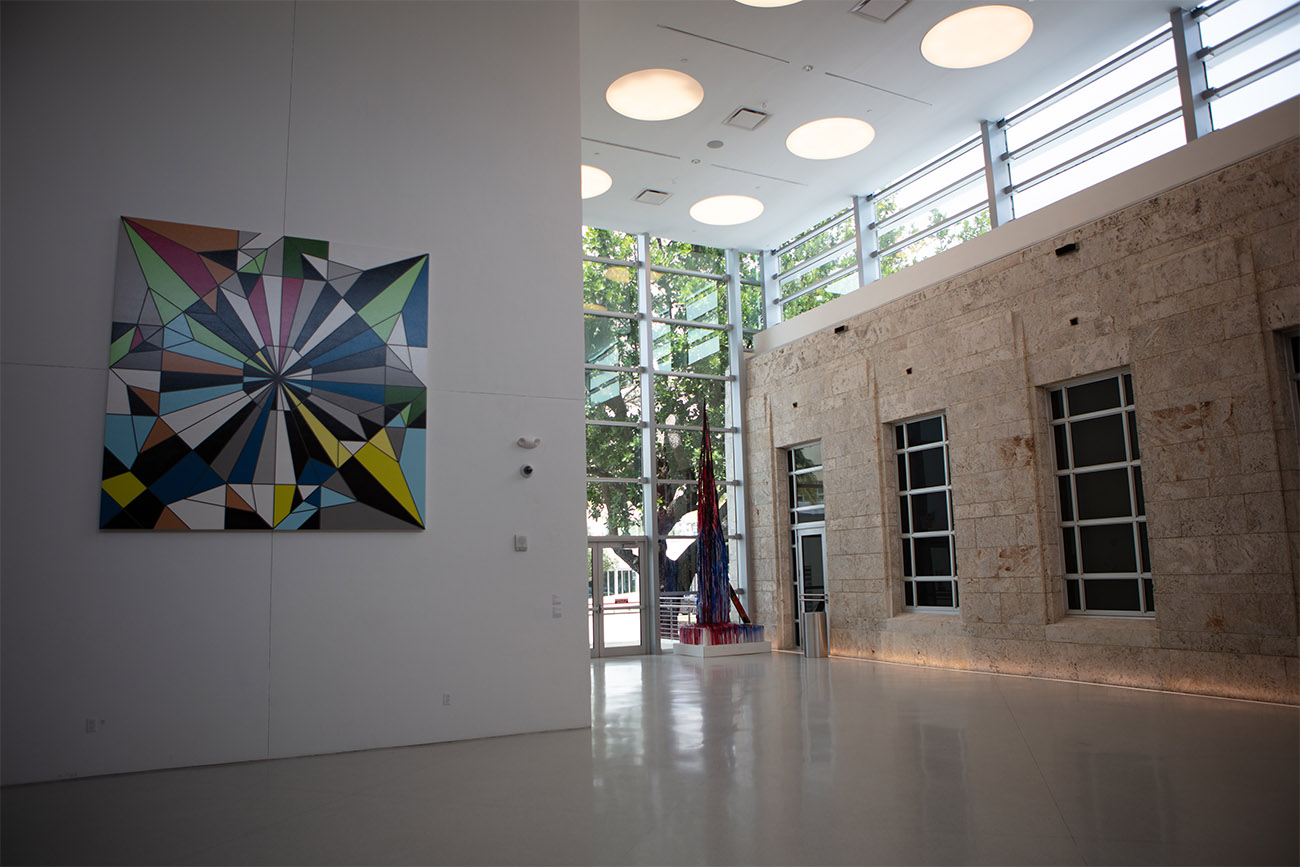
Greater Miami Convention & Visitors Bureau
For an example of stripped classicism, head to The Bass, Miami Beach’s contemporary art museum. Designed by Russell Pancoast, the grandson of John Collins (for whom Collins Avenue is named), this early 1930s deco building was first constructed as the John Collins Memorial Library and Art Center. The building’s symmetrical elements reflected the gardens at the time, which were also planted by Collins. Pancoast took further sculptural inspiration from the Folger Shakespeare Library and regional influences from the area’s natural oolite limestone used on the façade. The bas relief friezes on the exterior were meant to evoke the works housed inside and referenced Latin America, as was popular at the time.
Lincoln Road: Deco Meets Modernism
From The Bass, head to nearby Lincoln Road, a pedestrian-only shopping and dining district, for sightings of tropical deco here, there, and everywhere. City founder Carl Fisher launched the promenade in the 1920s, and the famed architect Morris Lapidus revamped it in 1959.
Lapidus included space-age shade canopies and garden structures that combined geometry, suspension, and color to evoke tropical deco and modernism simultaneously. Many of these items — what he called “doodles” — still survive, as does the circa 1935 Colony Theatre. The restored venue now presents works by its in-house company, Miami New Drama.
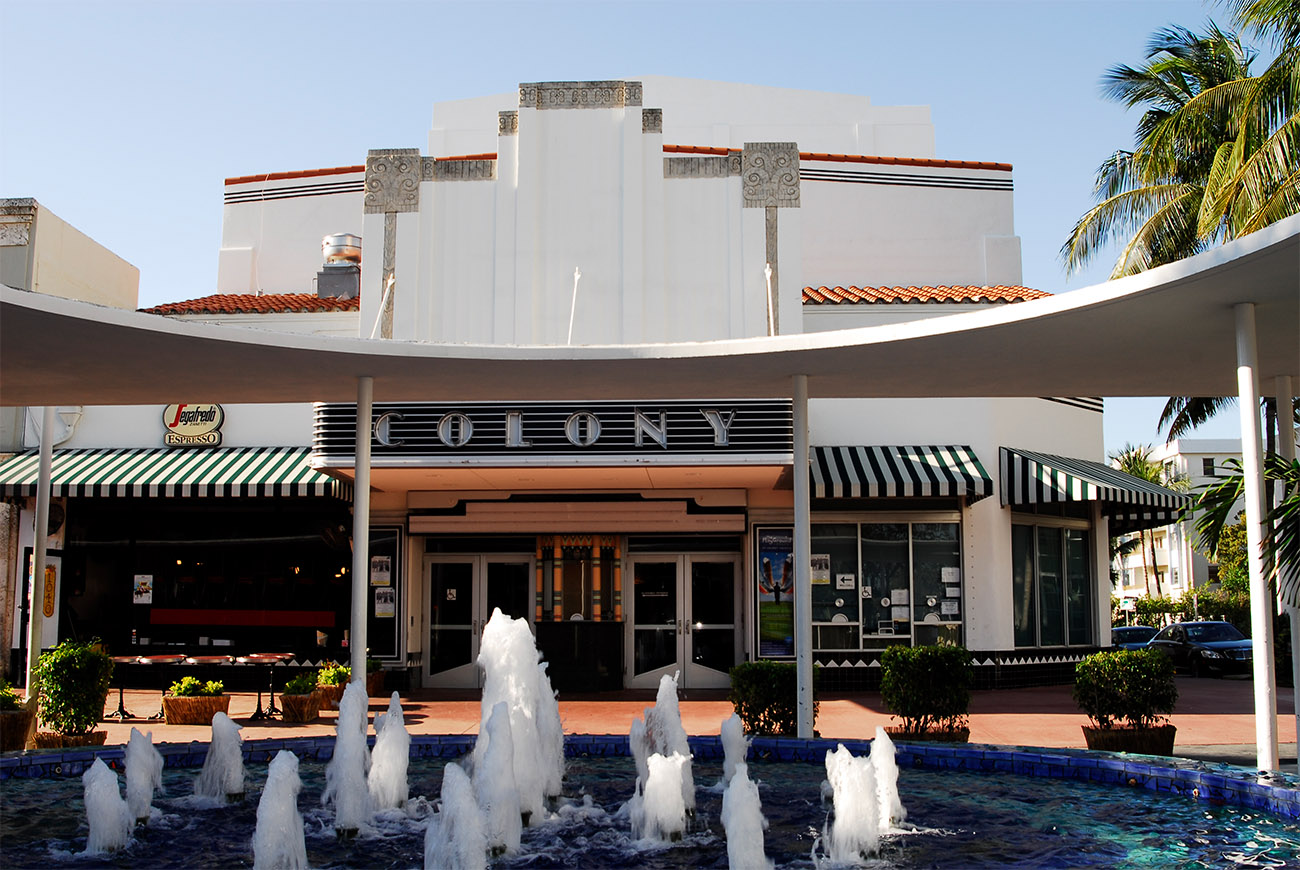
Greater Miami Convention & Visitors Bureau
Whether or not you buy tickets to a production, you’ll find plenty of real-people theater — set against a glorious tropical deco backdrop — at the outdoor bars and cafes lining Lincoln Road.
Amid the bright Florida sunshine, Miami has a style all its own. And whether you wish the style would make a comeback, or you feel it’s a product of its time, tropical deco is quintessential Miami Beach.
Where to Stay:
You’ll also be in art deco style when you stay in the heart of Miami Beach at Marriott Vacation Club®, South Beach, part of The Marriott Vacation Clubs™ City Collection. Cool off in your guestroom or two-bedroom suite, soak up the Florida sun at the beach across the street, or explore the vibrant shopping and dining options on nearby Lincoln Road. When hunger strikes, visit Havana 1957 for family-friendly Spanish cuisine and traditional mojitos in an exciting, casual atmosphere. Make the most of South Beach with an unforgettable Miami stay.
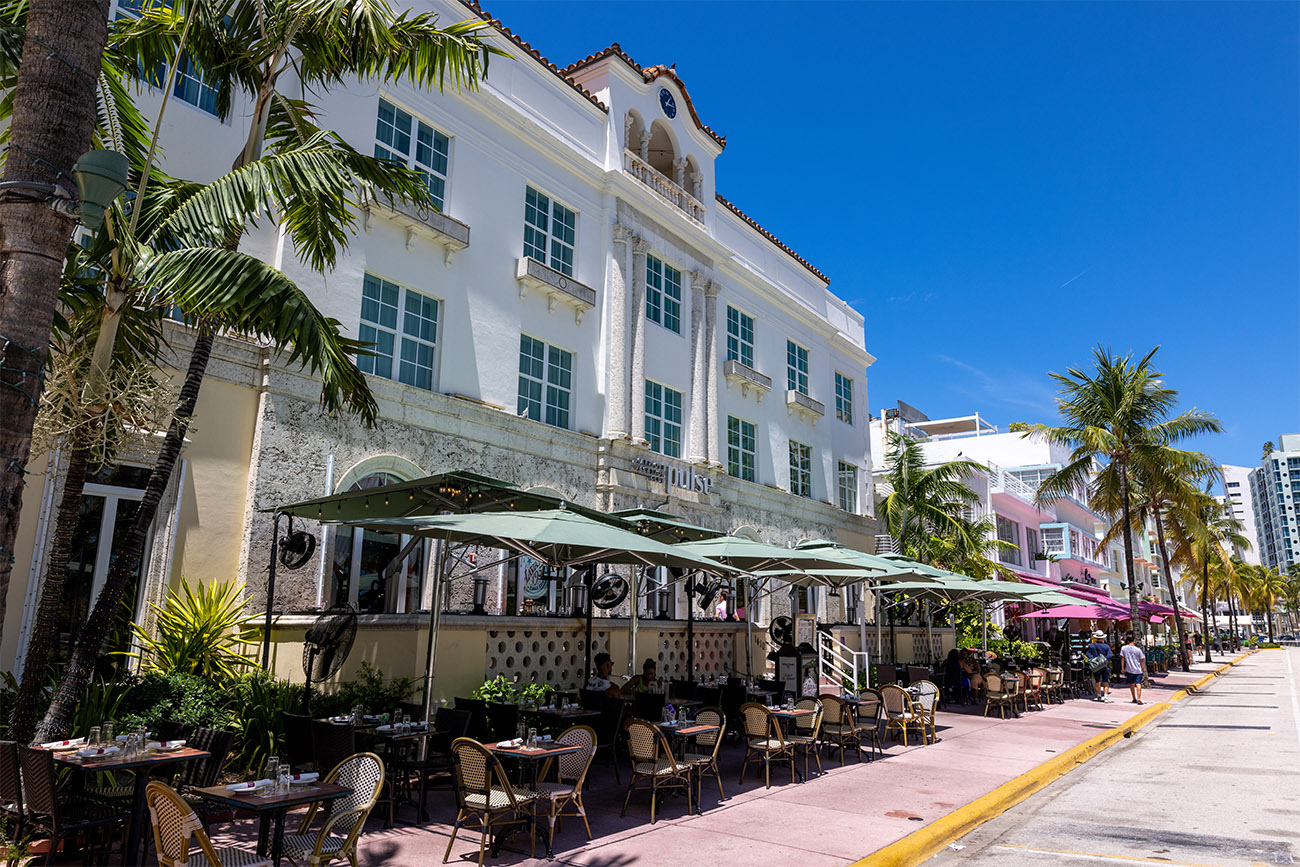 |
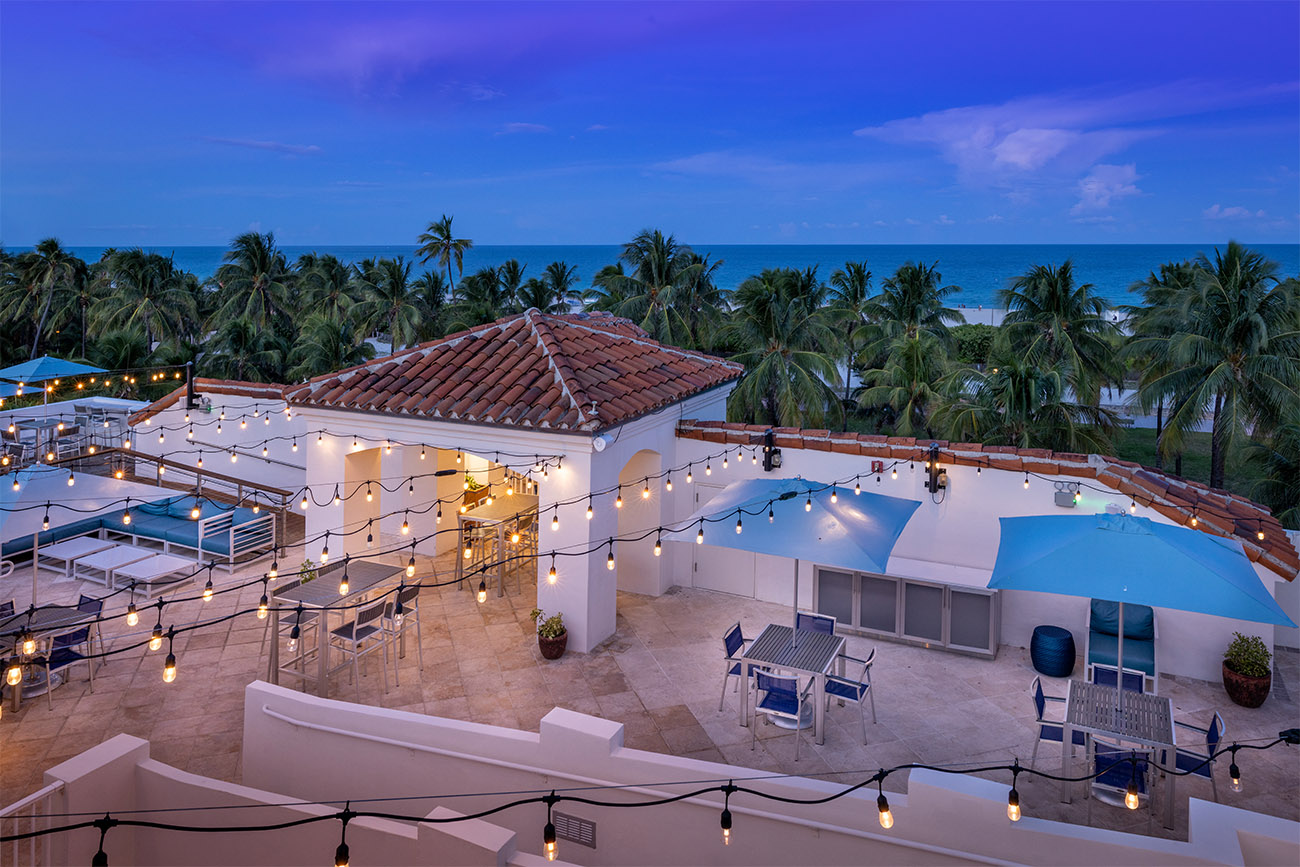 |
Your City Insiders:
To learn more about this and other unique vacation experiences in Miami, Florida, feel free to contact our local experts.
Marriott Vacation Club®, South Beach – 786-517-6200
Let curiosity be your guide, discovery be your agenda, and The Marriott Vacation Clubs™ City Collection properties be your host for exploring storied destinations. From finding off-the-beaten-path local favorites to enjoying a side of breathtaking downtown views with dinner and drinks, the City Collection is the key to unlocking the best of these vibrant cities.
Jen Karetnick is the author of twenty-one books, including the guidebook The 500 Hidden Secrets of Miami (Luster, fourth edition, June 2024). Visit her on Instagram @jenkaretnick.

